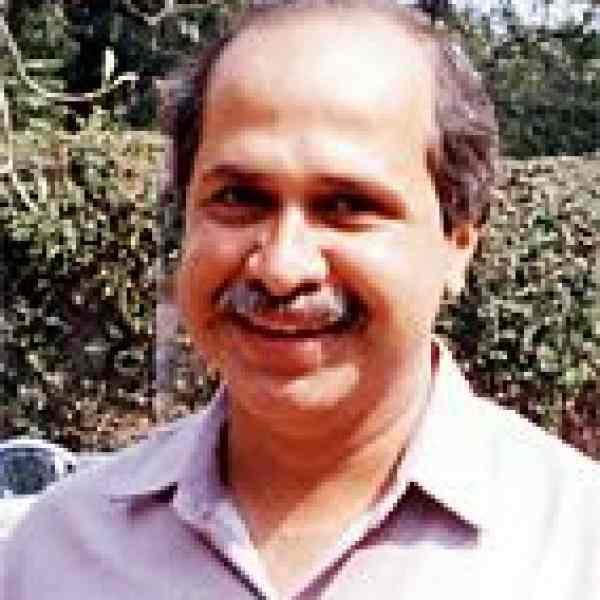Introducción
By putting pens and paper in the hands of Indian farmers, Shree Krishna Padre is building a field of grassroots agricultural journalism that puts farming information into the language of farmers.
La idea nueva
Shree Padre is promoting self-help journalism among farmers in Karnataka. His "Pen in the Farmer's Hand" movement allows farmers to trade information on agriculture and related subjects, giving a new voice to traditional wisdom. He recognizes that, collectively, farmers know how to solve the various problems they face; what they have lacked is a system for sharing their experiences and techniques with one another. Spotting the demand for clear, reliable information, Shree Padre reasoned that farmers could teach each other what works and what doesn't, so he began encouraging them to write. He organized short courses in journalism in various parts of Karnataka, and took teams on field trips to cover innovative methods. Their efforts have given birth to Adike Patrike, the first farmer-produced journal.
El problema
Most farm journals are written by technical specialists, who tend to use jargon that is meaningless to farmers in the fields. Articles often promote crops or techniques that are untested or unsustainable. For example, without doing thorough research, "experts" exhorted farmers to grow vanilla and cocoa, promising them great commercial returns - returns which never came. A similar blunder was committed with oilseeds: when prices fell precipitously farmers had to cut down the half-grown trees so they could make room to plant more viable crops.
Moreover, there are glaring communication gaps within the farming community itself: between the farmer and the outside world, between the farmer and the government, and among farmers facing similar troubles. The excellent practices of some farmers never reach the ears of others close by. Government policy has fallen out of tune with the needs of the farmers, with subsidies and other concessions becoming temporary relief measures, not long-term solutions.
La estrategia
Shree Padre realized that to fill these communication gaps, farmers should start expressing themselves. He encouraged them to review their experiences in the fields and write about them in the pages of a new publication. That was how the farmers journal Adike Patrike was born as the first farmer-produced journal. Shree Padre had immense faith in the wisdom and knowledge of farmers. So he coaxed farmers to record their success stories, words of wisdom, and the actual realities of the field in Adike Patrike. True success stories replaced highly scientific, research-oriented features.
In order to make this "self-help" journalism take root, he organizes short-term courses in journalism for farmers in various parts of Karnataka, training them to write and communicate their ideas effectively. He takes teams of farmers from different areas to plantations where innovative methods and farming practices are carried out, trains them to prepare reports about what they see, and teaches them how to write about subjects of interest to farmers. This first-hand experience in the field boosts their self-confidence in journalism and enables them to share practical information in an appropriate format.
Adike Patrike has become a big hit among farmers. The trained farmers not only write about their own experiences and innovations, but are also beginning to interview others and share the farming experiences in their neighborhoods. Shree Padre is using this powerful communication tool to address new issues of concern, including rainwater harvesting and water conservation, biological pest control, vermin composting, and animal husbandry. For whatever subject he chooses he uses the same strategy of instigating farmers to share their success stories.
His work is making waves in Kasargod and South Canara. He has been invited to replicate his idea through farmers guilds, quasi-Government farmer federations, and communities inside and outside Karnataka. Mainstream newspapers and other farming journals are seeking Shree Padre's services and skills to adopt a farmer-friendly approach in their communications. Now he is reaching out to Northern Karnataka, parts of Maharashtra, and Kerala. With the extensive resource material that is a part of the newspaper's archives he conducts slide shows and talks to farmers in all these regions.
He encourages the motivated farmers in these regions to take the lead in developing this kind of information sharing within the farming community and guides them in organizing journalism workshops. Many farmers cannot read, so he asks the literate farmers to read aloud from the journal in order to pass on the message.
La persona
Shree Padre hails from Vaninagar, a village bordering Kerala and Karnataka. After completing his bachelor's degree in science, he went back to farming but maintained his passion for writing and journalism. During 1985-86, the price of areca nuts, which is one of the main commercial crops of the region, collapsed. That incident stirred something in him and made him realize the need for an authentic exchange of information within the farming community. His initial idea of a journal with features written by farmers was met with skepticism. Undaunted, he pushed ahead. With the support of the Arecanut Growers Association, he started a newsletter for farmers with contributing articles from farmers.
